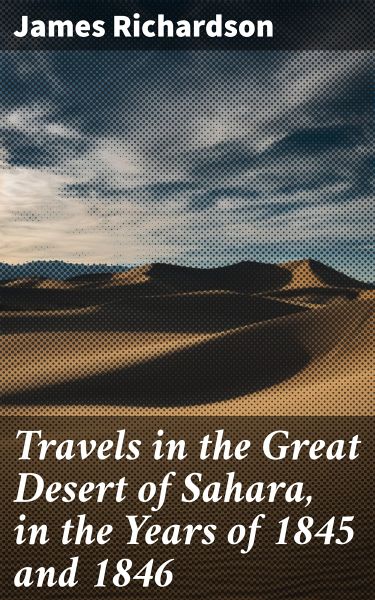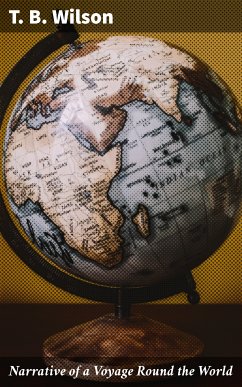
Travels in the Great Desert of Sahara, in the Years of 1845 and 1846 (eBook, ePUB)
Enriched edition. Unveiling the Secrets of the Sahara: A Journey Through Uncharted Lands
Kommentar: Ashford, Connor / Redaktion: Good Press

PAYBACK Punkte
0 °P sammeln!
In "Travels in the Great Desert of Sahara, in the Years of 1845 and 1846," James Richardson offers a meticulous account of his extraordinary journey across one of the world's most formidable landscapes. Richardson employs a vivid literary style that weaves together rich, evocative imagery with detailed observations of the Sahara's diverse geography, cultures, and peoples. Set against a backdrop of burgeoning European interest in African exploration during the mid-19th century, the book serves not just as a travel narrative but also as a significant contribution to the ethnographic and geograph...
In "Travels in the Great Desert of Sahara, in the Years of 1845 and 1846," James Richardson offers a meticulous account of his extraordinary journey across one of the world's most formidable landscapes. Richardson employs a vivid literary style that weaves together rich, evocative imagery with detailed observations of the Sahara's diverse geography, cultures, and peoples. Set against a backdrop of burgeoning European interest in African exploration during the mid-19th century, the book serves not just as a travel narrative but also as a significant contribution to the ethnographic and geographical knowledge of the period, encapsulating the dual themes of adventure and enlightenment. James Richardson, an English explorer and ethnographer, was driven by an insatiable curiosity and a desire to bridge cultures. His previous experiences in North Africa imbued him with an acute awareness of both the beauty and harsh realities of the desert environment. This book reflects his dedication to authenticity, as he sought to document not merely the geographic wonders he encountered but also the intricate stories of the people living within this vast expanse. "Travels in the Great Desert of Sahara" is an essential read for those captivated by the intersections of adventure, history, and cultural exploration. Its detailed account offers valuable insights for scholars and enthusiasts alike, encouraging readers to embrace the spirit of inquiry and the rich tapestry of human experience that exists within the Sahara. In this enriched edition, we have carefully created added value for your reading experience: - Hand-picked Memorable Quotes shine a spotlight on moments of literary brilliance. - Interactive footnotes clarify unusual references, historical allusions, and archaic phrases for an effortless, more informed read.
Dieser Download kann aus rechtlichen Gründen nur mit Rechnungsadresse in A, B, BG, CY, CZ, D, DK, EW, E, FIN, F, GR, H, IRL, I, LT, L, LR, M, NL, PL, P, R, S, SLO, SK ausgeliefert werden.













